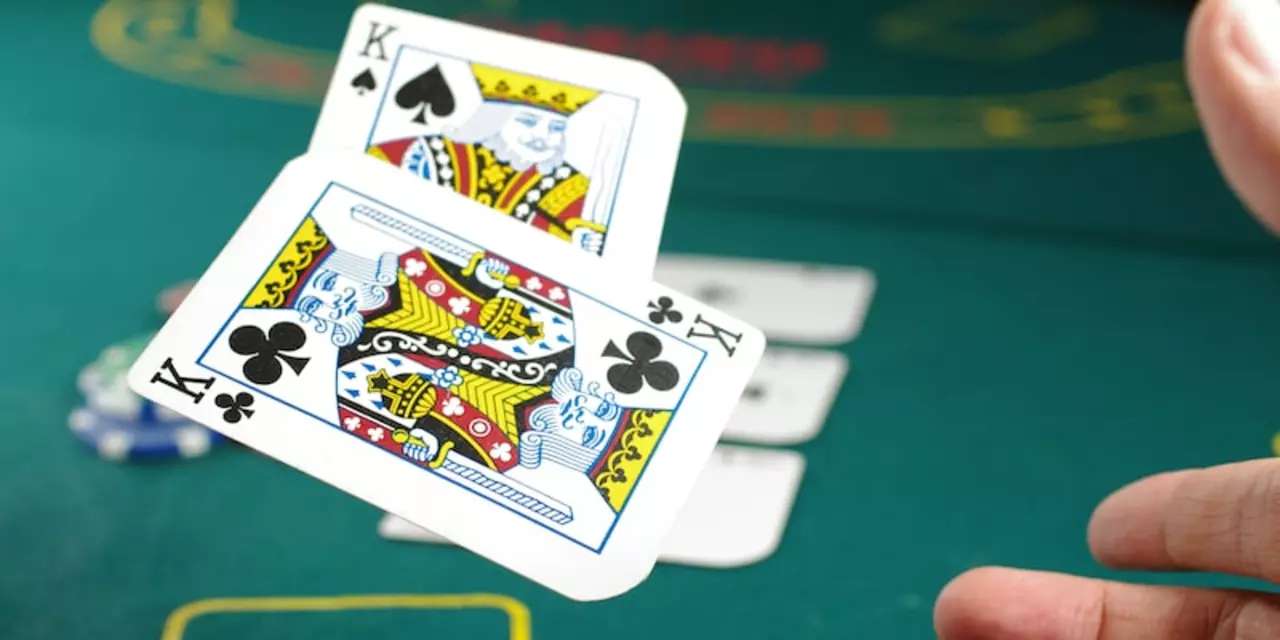What's the worst hand at Poker?

Analyzing the Worst Hands in Poker: What Makes Them So Bad?
The Pros and Cons of Playing the Worst Hands in Poker
The worst hand in poker is often seen as an undesirable one. But there are some occasions when playing a weak hand can be beneficial. It all depends on the situation and the players involved.Pros
The most obvious pro to playing a weak hand is that you won't lose as much money. If you have a weak hand, you can fold and save yourself from a potentially costly mistake.
Another pro is that if you do decide to stay in the hand, you can often surprise your opponents. When someone is expecting you to fold, they may be less likely to bet or raise. This can lead to a nice pot for you if you hit your draw.
Cons
The most obvious con to playing a weak hand is that you can lose a lot of money if you do stay in the hand. If you don’t hit your draw, you will end up paying off your opponents with no chance of winning.
Another con is that staying in a hand with a weak hand can be seen as a sign of weakness. Your opponents may become more aggressive, thinking that you are desperate to hit your draw. This can turn into a costly mistake if they hit their hand and you don’t.
Overall, playing a weak hand in poker can be a risky move. You need to be aware of the situation and the players involved before you make the decision to stay in the hand. There are pros and cons to playing a weak hand, but ultimately it comes down to your own personal decision.
Strategies for Playing the Worst Hands in Poker
Poker can be an intimidating game for some, especially when the cards dealt seem less than desirable. It’s easy to want to fold the hand immediately and cut your losses, but that’s not necessarily the best strategy. Instead, there are certain strategies you can use to make the most out of a bad hand.First, you should try to figure out what the best hand is that your opponents may have. This can help you decide whether it’s worth staying in the hand. If you think they have a better hand than yours, you can decide whether to bluff or fold depending on the stakes.
It’s also important to pay attention to what cards are on the table. If there are a lot of high cards on the table, it could mean that your opponents have higher hands than yours. But if the board is low, then it’s likely that you could have the best hand.
Finally, you should try to keep track of the betting. If everyone is betting aggressively and raising, then it’s likely that they all have good hands. If that’s the case, then it’s probably best to fold. But if the betting is light, then you can be more aggressive with your hand and try to take the pot.
These are some of the strategies you can use to play the worst hands in poker. It’s important to remember that poker is a game of skill, so even if you have a bad hand, you can still use your knowledge of the game to turn it into a winning situation.
How to Avoid the Worst Hands in Poker and Maximize Your Chances of Winning
Poker is a game of skill, luck, and probability. While it’s impossible to predict what cards will come up, there are certain hands that are more likely to lose than win. Knowing the worst hands in poker can help you maximize your chances of winning by avoiding them.The worst hands in poker are often referred to as “garbage” hands. These are hands like 2-7 offsuit, 3-5 offsuit, and 4-6 offsuit. These hands have very little chance of winning and should be avoided at all costs.
The next worst hands are hands that are slightly better than garbage hands but are still a bad bet. These include hands like 4-7 offsuit, 5-8 offsuit, and 6-9 offsuit. These hands can sometimes win if they hit the right flop, but they are still poor bets overall.
The third worst hands are hands that are slightly better than the previous two categories but are still bad hands. These include hands like 7-10 offsuit, 8-10 offsuit, and 9-10 offsuit. While these hands can sometimes make a good hand on the turn or river, they are still bad bets overall.
Finally, the fourth worst hands are hands that are slightly better than the previous three categories but are still bad hands. These hands include hands like 10-J offsuit, J-Q offsuit, and Q-K offsuit. These hands can sometimes make a good hand on the turn or river, but they are still bad bets overall.
By avoiding these hands, you can maximize your chances of winning and make more money in the long run. It’s important to remember that poker is a game of skill, luck, and probability. Knowing the worst hands in poker can help you make better decisions and increase your chances of winning.
- Feb, 6 2023
- Xander Whittaker
- 0
- Permalink
Written by Xander Whittaker
View all posts by: Xander Whittaker